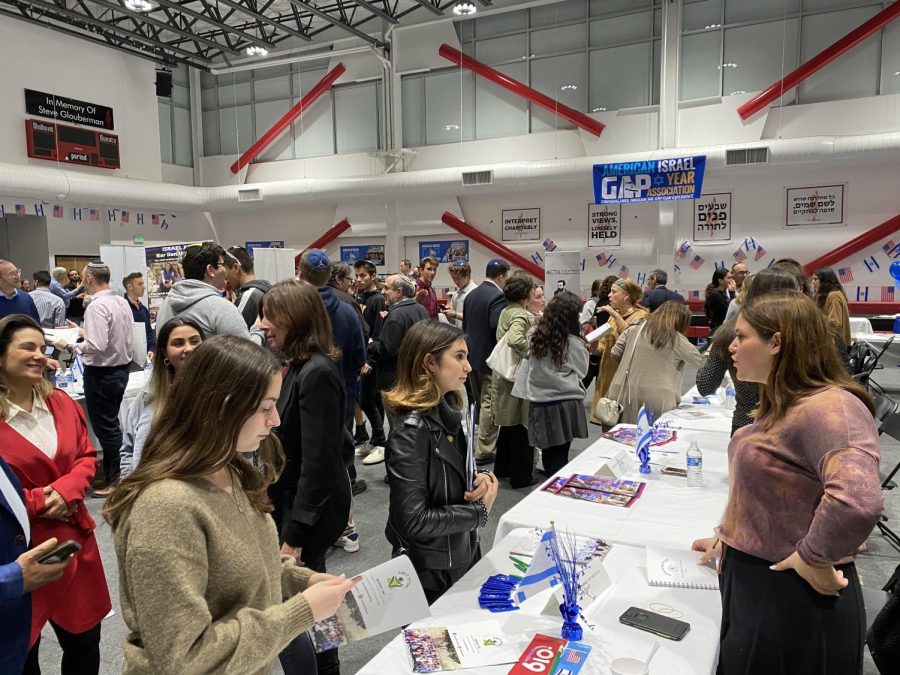A Year to Learn and Grow: Why Milken Students Should Consider Taking a Gap Year
Milken students can learn about gap years from their college counselors, from fairs, and from online research.
Mira Berenbaum ‘18 looked up at the wall, perfectly yellowed with notes stuffed in every crevice. As she gazed at the Western Wall, surrounded by other participants of March of the Living, she realized that her connection to Israel gave her a unique opportunity that she could not pass up. She decided to spend the next year in Jerusalem, on a gap year called Nativ.
A gap year is any experience in the year or two between high-school graduation and college. Any student who is planning to go to college – whether a community college or a four-year institution – can take a gap year first. It does not even need to be time spent traveling or studying. Students taking gap years can work in a family business, at a retail store, volunteer, or travel the world, all in the year between high school and college.
Despite all of the available opportunities, many Milken families do not consider gap years. “We’re a college prep school and most families have the expectation that when their kids graduate from Milken, they start college,” Mr. Mankuta, Milken’s Director of College Counseling, Alumni Relations & Strategic Partnerships, explains. But if they do consider gap years, most Milken families think of an experience where a student travels on a service-or-academic-based program. Mankuta sees gap years as incredible opportunities that more students should explore. He noted that he would love to see more Milken students go on gap years.
For students who choose to go abroad for their gap year, Israel programs like the Kivunim Institute and the United Synagogue of Conservative Judaism’s Nativ, the program that Berenbaum decided on, are very popular with American Jews. Although they are opportunities to explore Israel, they are also preparatory for college.
If students are interested in gap years and have not already done the research, the college counseling staff is always available to help. “I want students to realize that their college counselors are resources for them if they’re interested. We would be happy to work with them to research together, and to find opportunities that work well for them.” Mankuta says.
Milken, in partnership with the American Israeli Gap Year Association (AIGYA), usually puts together a fair of 8-10 Israel gap year programs for students to learn about Israel programs, and after a hiatus due to COVID, it will most likely return this fall. Phyllis Folb, the director of AIGYA, says “Israel has so much to offer, from your Jewish heritage to internships, to any kind of exploration that you can possibly imagine.”
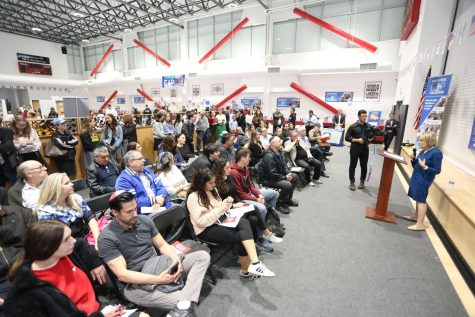
Folb believes that being “an eyewitness to the truth” of Israel in all of its strengths and challenges is an incredible opportunity for students, especially before stepping onto a college campus.
Kayla Cohen ‘17, a Milken graduate who was involved in creative writing, track and field, cross country, as well as student government, and the SJC in high school, was not necessarily thinking of taking a gap year. However, her dad “supported the idea of a gap year, even before [she] started high school,” Cohen says. The idea was always in the back of her mind. In junior year, she was really focused on college, but she started to seriously consider a gap year program in her senior year at Milken. Students who want to take a gap year still need to apply to college in their senior year so that they can focus on the gap year experience without having to fill out applications.
Many schools require students to defend their choice of taking a gap year, and Cohen received help from Mr. Mankuta to do so. She deferred her admission by one year, meaning that UC Berkeley saved her spot in the next freshman class.
Cohen attended Kivunim, an eight-month-long Jewish gap-year program that is based in Jerusalem. It teaches students both Arabic and Hebrew, and students spend about one-third of the program “traveling to Jewish diaspora communities,” Cohen explains. Cohen went to countries like Morocco, India, Greece, and Spain.
“Even though a lot of the studies are about Israel, a lot of the program itself is based outside of it,” Cohen says.
Taking a gap year has many benefits. Mankuta believes that the break between high school and college is “hugely beneficial,” whether it is “academically, emotionally, socially, [or] to mature.”
Cohen found that because she was living with so many different kinds of people, and traveling so often, she learned how to be flexible, something that is integral to being a college student.
Academically, Cohen found that her gap year experience added even more value to her college classes. At UC Berkeley, Cohen stood out among her peers because she had been to places like Delphi and the Parthenon, places she was learning about in ancient history courses. “Those places weren’t just names in textbooks, they actually meant something to me because I had real experiences there,” She adds.
Socially, gap years are a great opportunity to meet new people. “Two of my best friends are from the gap year,” Cohen says. Her friends from New York came to visit her and have Shabbat dinner, and she is planning on traveling with gap year friends this summer.
Cohen believes that “gap years can be for any and all students.” After a rigorous high school experience, Cohen wanted a chance to grow and learn instead of jumping right into college.
Cohen would especially recommend a gap year program to “anyone who is interested in maturing before college.” Gap years also serve as a great way for students to find out possible career paths. She found that her gap year experience helped guide her to what she wanted to do in the future, and made her a more well-rounded person. Cohen chronicled her gap year in a book: The Full Severity of Our Connection: Lessons from the Jewish Diaspora.
Mira Berenbaum was involved in the Beit Midrash Fellowship, USY, and served as one of the Roar’s Editors-In-Chief during high school. She heard about Nativ from Camp Ramah and USY. As the official gap year affiliated with the United Center for Conservative Judaism, she had been familiar with the program for years. Because she didn’t go on Tif, Berenbaum knew that if she were to go on a gap year it would be in Israel. Her parents encouraged her to wait before committing to Syracuse University until she finished March of the Living. On her trip, she realized that she wanted to take a gap year.
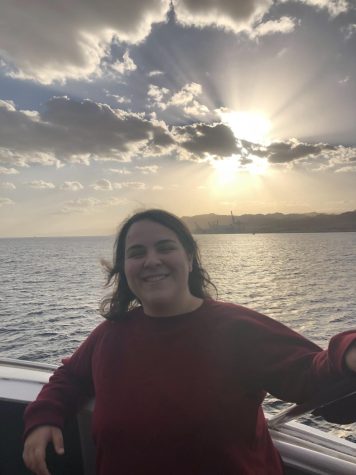
She had a great experience on Nativ where she took some classes at Hebrew University while experiencing Israel. “It was really transformative for my Jewish identity,” she said.
Because she took a gap year before starting college, she found that she was able to adjust to being more independent and responsible in a smaller group and without having a rigorous academic schedule on top of it. It also helped her because as a business major at Syracuse, she knew that she needed to spend the summer before her freshman year doing internships. Because she did a gap year, she was able to be a camp counselor for an extra summer before having to do internships the next year.
Berenbaum says that taking a gap year is “the best decision I’ve ever made. I think that it’s opened a lot of doors for me at school just because I have a new perspective coming into college and I feel a little bit older and wiser.”
She believes that gap years can be for anyone. “No one should completely exclude a gap year from their consideration process,” Berenbaum says. “Life moves fast and there’s no rush. You’re gonna finish college anyway, why not take the year off and gain some insight [and] knowledge then go to college with that new perspective?”
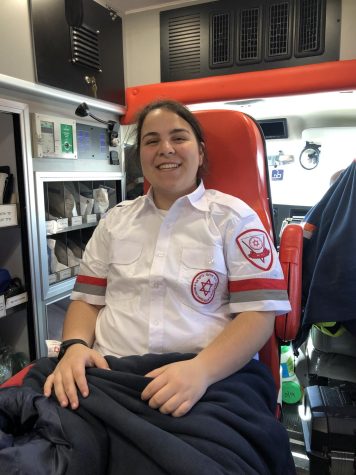
Gap year programs may not be for everyone, but they are a great opportunity and all Milken students should consider learning more about these unique programs. Not only do they give students a break between high school and college, but they also provide the potential to meet amazing people and explore fascinating things, abroad or in their own backyards.
For questions about Nativ, Mira Berenbaum can be reached at [email protected].
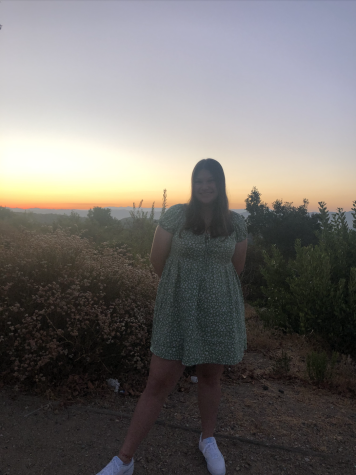
Miriam Herstein, The Roar’s Deputy Editor, is a senior at Milken who has been in Journalism for two years. While she enjoys writing about student clubs,...



